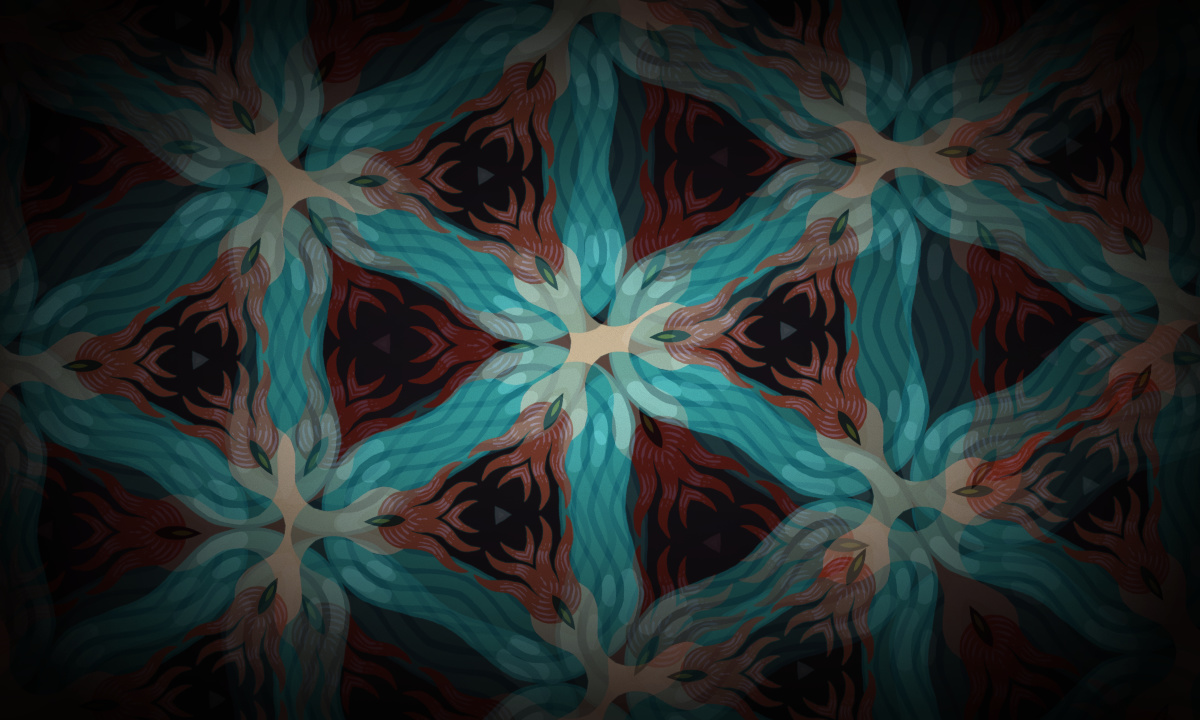Psychedelic Perturbation
The path is instinctual

Psilocybin is especially well suited to the treatment of trauma, because more than mescaline or LSD or maybe even DMT, it tends to stimulate emotive association and episodic memory review, such that those systems become suggestible. In the language of neurosynergetics, the unique metabolic dissipation paths traced by psilocybin seem to necessitate a critical phase transition in some of the most difficult to reach areas of the human psyche: it's a stochastic perturbation pushing normally highly stable systems into an upper harmonic calibration routine, such that change is possible. Think about it in adaptive terms: why should long-term memory and the sense of self derived from those memories be anything but stable and difficult to perturb? Psilocybin is a mild poison, a wondrous accident as all medicine is: fungi need the ability to discourage herbivores from snacking on their precious fruiting bodies, so they've developed a pantheon of emetics - some of which will make a deer so feel weird that it won't do it again. But we're magic apes, and we live such dangerous spiritual lives on the badlands between animal sanity and inhuman madness, that we desperately need this emetic, this rattle: I've been wanting to point out for a long time, the traditional use of the high-frequency rattle in every psychedelic healing ceremony on earth and its affinity with the theory of stochastic neural perturbation. I'm dead serious: the linear whitenoise distribution of the medicine rattle does not exactly soothe narrative chatter, it overloads the auditory system such that the thalamocortical loop is disrupted, and voilà - you've prepared the ground for a truly novel neural configuration. Give me medicine, a rattle, and a fire and I will give you a healing ceremony.
And why is fire necessary? Because you need a place to put your garbage. Said less cynically, we need something to pray to: fire is the original TV, the conversation piece, the excuse for indirect sociality which tribal life demands. The elders say, "point your prayer into the fire", and it's always considered bad etiquette to block anyone's direct access: fire is the safest spiritual locale in any group topology, because of its ancient effect on the ape psyche - it means home, protection, inclusion, tomorrow and yesterday. It is where your ancestors live. And what is an ancestor? It is the wisdom you have accumulated without assimilating.
Mainstream acceptance is growing, but there's still an enormous task of translation ahead of us if we're going to make real progress in "psychedelic therapy" - because the western medical model is fatally flawed, having been poisoned at its root by postaxial Christian assumptions concerning the essential worthlessness of the body. Medical students are still taught that the body is the source of illness, rather than an algorithm of health. Hippocrates didn't share this attitude at all: his principal method was not violent intervention, but to provide clean water and frequent bathing, quiet cheerful surroundings, a little controlled isolation, and careful observation - to doctor in the original educational sense.
We have to translate the ancient ways into terms we can accept without blunting their imaginative potential and spreading this contempt of endogenous healing: frankly there is still too much of that missionary's fear present in all medical ethnology and psychiatric appropriation of psychedelics - if he goes native he won't be taken seriously back home. Like most anthropologists, his livelihood depends on his preserving a sense of superiority and irritable dismissal: the anthropologist generally isn't cool enough to sport native gear until it's fashionable like a renaissance explorer would, much less those psychiatrists who are so universally insecure about their soft science and seem to behave even more brutally in compensation - it's important to keep all these social dynamics in mind.
But the problem with the curanderos as I find them, is that their claims to shamanic power tend to be excessive. They let it go to their head, and as a result tend to demand a little more credulity than the western skeptical intellect wants to pay. Literally in physiological terms, they let it go to their head and the ceremony devolves into a trip - and frankly, it's because of poverty: the psychology of generational poverty compels them to exaggerate their spiritual attainment, because they feel an urgency to drain the credulous tourists before they dry up and go back to their expensive cities. Generally those most suited for a medicine path are also those who will choose to make a living for their families in a more stable and sustainable way - so it tends to be the losers and layabouts who will try to trick outsiders into believing they're shamans, and the spiritual tourist trap is born. This has always been hard to watch play out in those places where we hungry euroamerican ghosts seek immaterial enrichment. Ayahuasca as communal practice among the Shipibo, as I knew it even as little ago as the early 2000s, has largely been obscured and obliterated by tourism. The one truly reputable and powerful ayahuascero I knew is long dead, and it seems that the locus of real medicine has shifted elsewhere.
This is all extremely unfortunate, because the foundations of traditional shamanic initiation are still very strong in places like Mexico and Peru. But even more precious is the encompassing community's acceptance of the role: to have a community ready for your gifts is much more important than having a path outlined, because the path is instinctual and thus must be recreated in every instance anyway. Good shamans always taste the same: that impeccable sincerity, that surprising humility paired with an immutable pride, that sense that you're meeting a complete human being for once, finally, all at once.
I met one of these nouveaux medicine men recently at a hot springs in the high desert of eastern Oregon: he's a veteran who specializes in the psychedelic treatment of PTSD and addictions. We bonded over a mutual past of having our butts kicked trying to treat heroin dependence, trauma, and psychosis using conventional methods. Those years hollowed out a place in my soul, a round encircled shrine, a place where a beautiful schizophrenic boy from Harlem I was trying to save still sits and tells me secrets of the psyche in his own riddled way. I learned a lot but I couldn't do much. Awash in the despair, merely drowning along with them, merely another minor casualty.
We modern medicine bearers, we poor lost souls having found ourselves in the dumpsters, having ground off the rust from an ancient rite we were told is worthless, we brilliant shining nobodies bearing the torch of sanity for the sad somebodies: what will become of us? What I said about a prepared communal receptivity is boiling in the back of my mind. All the ascetic excellence in the world will wither in time. Eventually we can't grow anymore without a circle, a people to serve, an altar of sacrifice.


